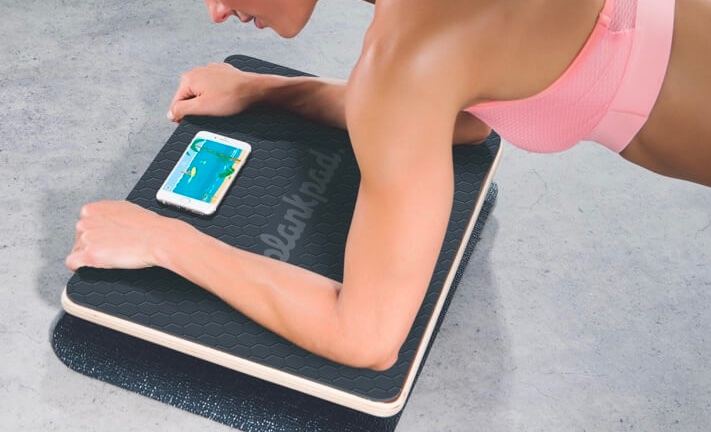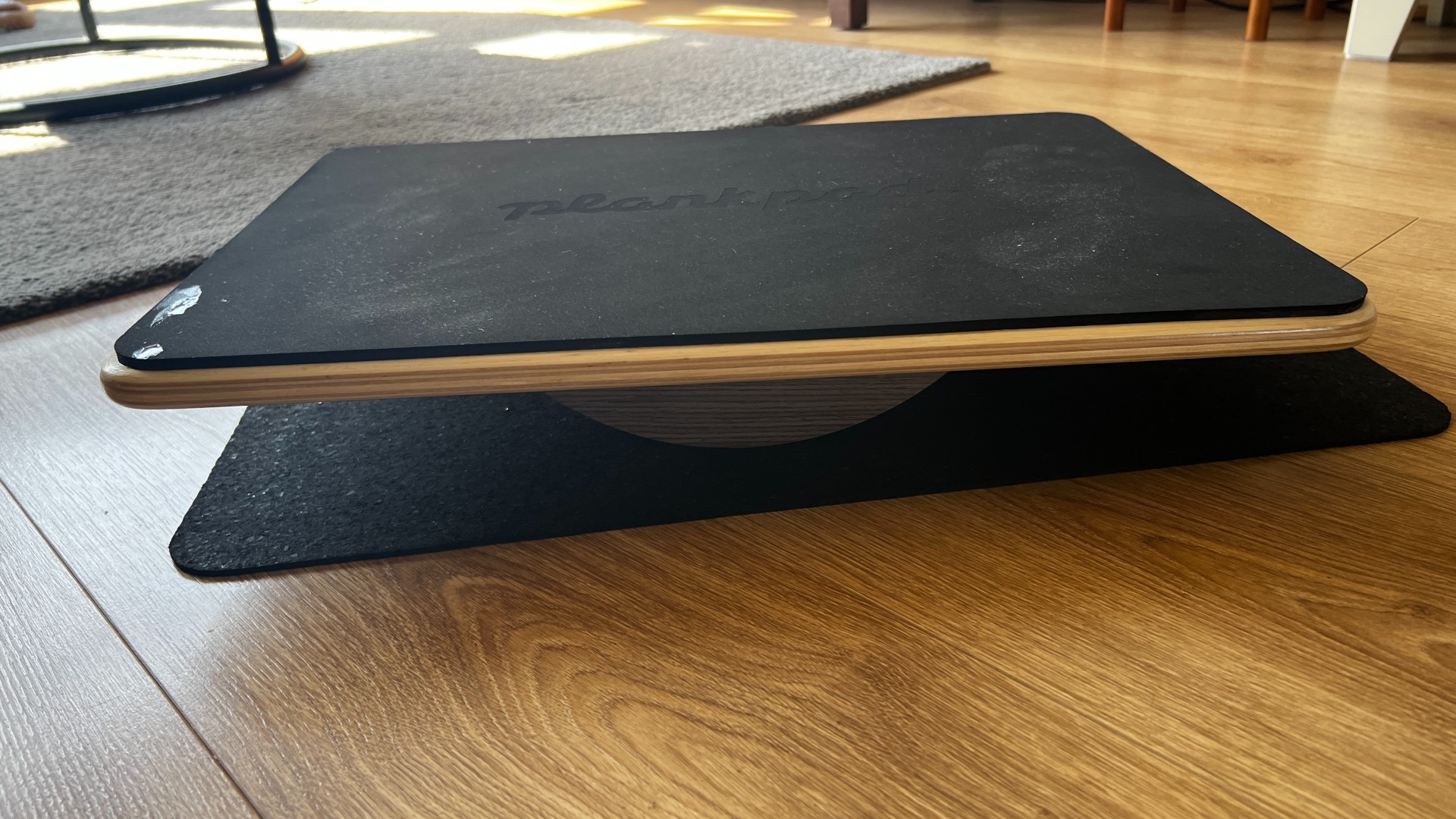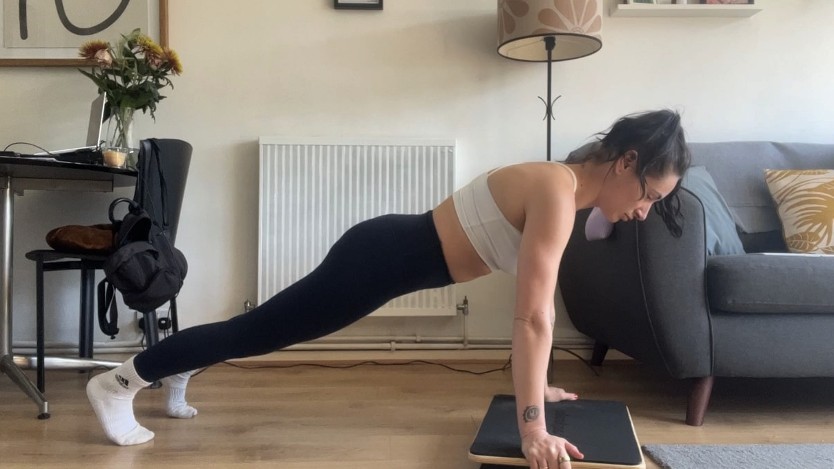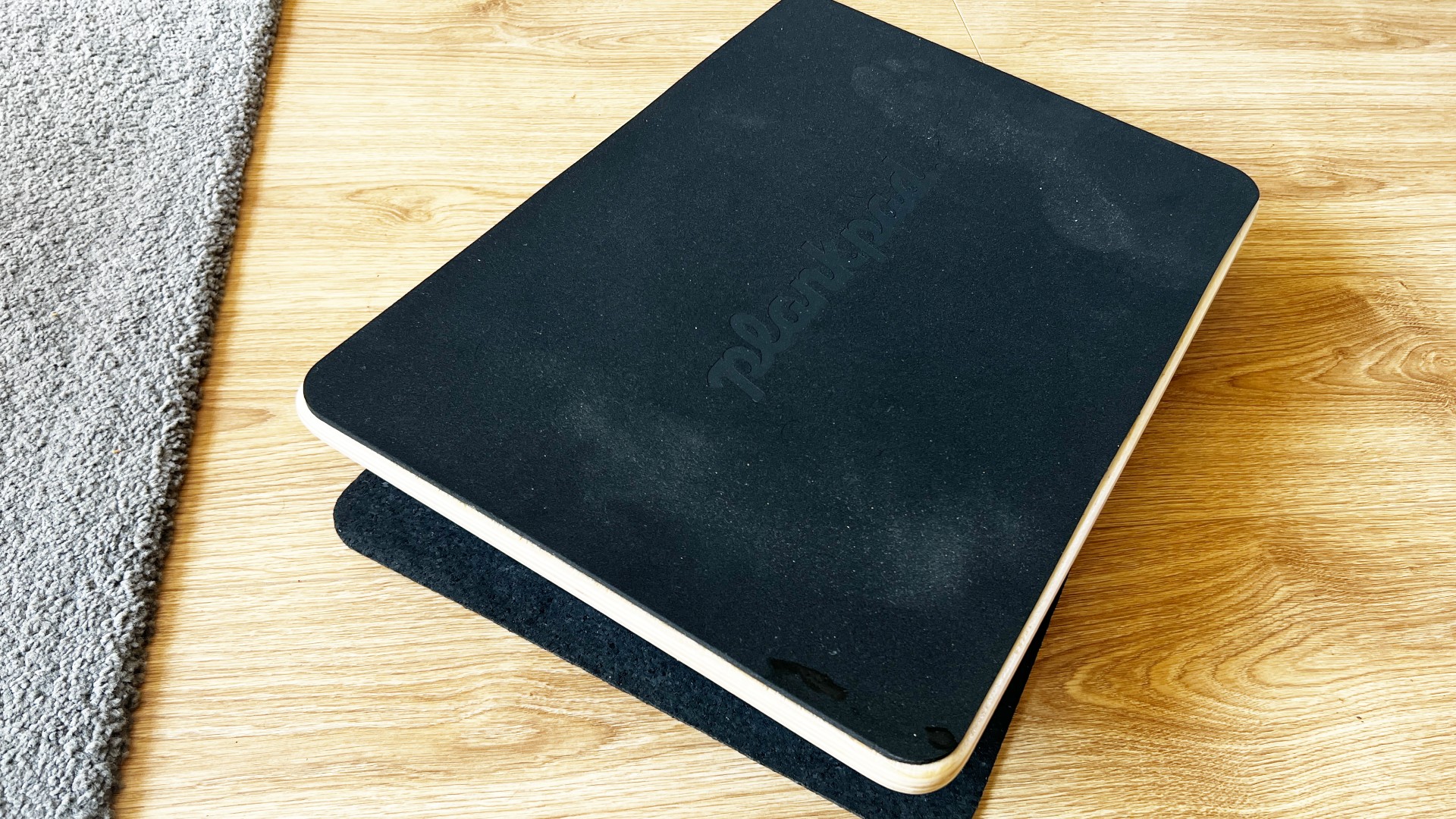
We’ve been putting many plank variations to the test at Tom’s Guide, accumulating some high rep counts along the way. But this time, I wanted to see if I could combine gaming and fitness. Enter, the Plankpad.
If you haven’t heard of a Plankpad before, the interactive bodyweight trainer partners with its own gaming app, giving you access to various games and workouts on your smartphone or tablet. The balance board could help strengthen every muscle group, including your shoulders, arms, back, chest, core and legs.
If your standard plank needs a facelift, we’ve got you covered with the 11 best plank variations, tried and tested by us. I rolled out my exercise mat and got to work supercharging my next fitness challenge with the Plankpad, and here’s what went down.
What is the Plankpad?

We love the plank. It targets multiple major muscle groups using just your body weight, and you could improve core stability, lower back strength and posture. The Plankpad elevates your plank experience, using a flat top and unstable bottom to test your balance, coordination, reaction times and stability on a moving board.
The Plankpad app — available on iOS and Android — gives you access to follow-along fitness games and workouts that respond to your movement on the pad. Moreover, you can stand on it, turning each workout into a full-body experience.
The pad has a non-slip mat, but I recommend rolling out one of the best yoga mats for extra support. If I could train my whole body by playing games, I wanted to experience it, so I got to work — and here’s what happened.
I started using a Plankpad every day to torch my core — here’s my verdict

It's efficient
After several days of testing, I was first impressed by its efficiency — my muscles felt wiped after using it, and I had particularly achy shoulders. Like a Bosu trainer flipped upside down, the unstable surface forces your body to recruit various muscles together to keep the board centered or guide it in response to a game.
Simple in theory, but dynamic plank training takes a lot of work to stay continuously stable and controlled. Combined with a game or workout, it quickly becomes tiring.
It's hard work
I put my phone on top of the Plankpad, which calibrates to detect movement correctly. If you’re a beginner, the team recommends starting with the games to help build core strength.
On the workout tab, I could choose between 30 to 240-second plank workouts, with exercises changing every 30-second interval. I started with a 90-second attempt and began to increase from there. Along the bottom of my screen, I had a moving scale that responded to my efforts, and if my form slipped or I rolled too far over, it flashed red to help correct my posture.
Exercises included straight-arm Spiderman planks, forearm straight-leg raises and mountain climbers, which test various muscle groups, although these exercises do become repetitive and limited. That said, my abs and shoulder muscles felt torched after these short workouts, and luckily, you don’t need to hold a plank for long to benefit — in fact, this is how long you should hold a plank for.
It's fun
The best part about the Plankpad is the gaming element, which is great fun. I could choose difficulty levels from easy to hard and between placing my knees down (suitable for beginners), forearm plank or straight-arm plank positions. The app also gave me pointers on how to keep my form tight.
If my time testing the best fitness games on Meta Quest 2 told me anything, it’s that my fitness gaming sucks, but it tapped straight into my competitive streak, and I was soon challenging anyone and everyone to a game. At first, the red alarm went off constantly, but as I started to find my rhythm, my scores began to clock up.
If you’re unashamedly competitive, you can play others by connecting to a smart TV, competing for high scores and testing your muscular endurance and plank credentials by seeing who can last the longest.
Games like Fruit Slicer and Wave Rider can be tackled standing up and further confirmed that my balance needs work.
The app needs work
In its most basic sense, the Plankpad could help you build core strength and plank endurance, and it’s a bit of fun that’s inclusive for children. But there’s limited variety and long-term play available. The gaming focus is clever, shifting your mindset away from counting down to enjoying the moment and helping you exercise for longer, but it’s very repetitive.
The 30-day Plank Challenge is a must try
If your goal is specific to planking for longer, this is a great way to do it, but I recommend the 30-day Plank Challenge to measure how your body adapts to exercise. The challenge gives you three sets of exercises per day, with the working set gradually increasing and the rest period decreasing.
The Plankpad comes with an exercise plan showing 12 plank variations to try. After completing the challenge using a standard plank, you can graduate to intense plank variations.
If my time testing the best fitness games on Meta Quest 2 told me anything, it’s that my fitness gaming sucks, but it tapped straight into my competitive streak.
Just remember, the plank isn’t just a core exercise. Although we rate it as one of the best ab exercises, you’ll need to practice compound contraction to get the most out of it. Jase Robinson — the man behind this calisthenics workout — says to focus on the back, belly and bum.
By focusing on bigger muscle groups, you can subconsciously contract smaller, supporting muscles and improve mind-muscle coordination.








